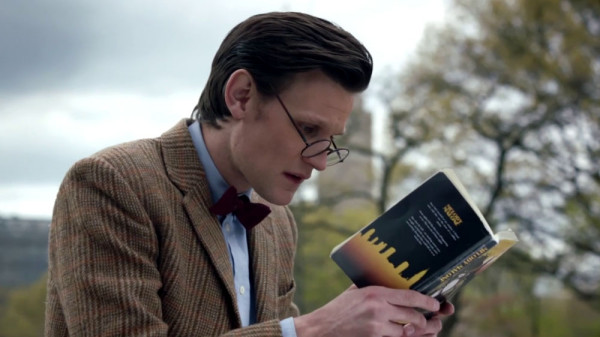A book review can possibly be one of the more hackneyed requirements in your English or Humanities class.
After reading a novel or a collection of poems, it is very likely that your teacher will articulate the expected and yet highly dreaded: make a book review. Outside the premises of the school, there is a cloven view regarding books – from reading it up to reviewing it. Expectedly, book enthusiasts delight in book reviews. They might be the ones who can produce a book reviews in a twinkling, especially if they were really gripped by the book they just read and will review.
Conversely, there are those who regard books and book reviews as termagants, something to avoid, something to repulse. Whether in compliance to a school requirement or in preparation to your next blog post (a book blog, yes!), some novelties are always welcome to spice up your book review. The time is high to get out of the box and go beyond the typical questions elaborated in book reviews.
Here are four questions to be answered that can make your book review stand out:
With what book will the book you’re reviewing make a good comparison?
There is the idea of intertextuality in literary theory which simply states that all of the ideas encased in texts are related to one another. Thus, James Joyce’s Ulysses can be associated with The Odyssey. Uncle Tom’s Cabin can be a rightful predecessor or Rizal’s Touch Me Not.
As you do your book review, keep this in mind and pursue possibilities. Does the protagonist in the book you’re reviewing remind you of another main character from another novel? What events in the books drove you to make such judgment? This intertextual bent is rarely done in book reviews and can be a nice facet of your own review.
What could be an alternative ending to the story?
What is intriguing about this question that can prompt a book review is the layers that can be untangled and explored and the multifarious paths that can be opened up. The alternative/s that you will mention will expose your previous understanding of the given text as much as say something about your biases and demands of the texts. This can also encourage the readers to do the same.
Try to rethink of Kafka’s The Trial where the protagonist found out the crime he committed and made him do it again! Or imagine the classic fairy tale Cinderella where the Prince Charming was revealed a homosexual and asked Cinderella for help to capture the heart of his own ‘prince charming.’ The possibilities are not only endless; they can also be exhilarating.
What could be some back stories that sparked the behaviours of the characters?
This will also involve a lot of creative thinking that can lead to interesting ideas. Having some knowledge about psychology does not necessarily mean a toehold. One just need to excavate deep in one’s own mind and read closely the text in order to develop the stories of each character.
This can be done more nicely on antagonists or minor characters. Perhaps Sancho Panza recalls his father in Don Quixote? Or maybe Godot was really one of either Vladimir or Estragon and neither of them just admitted it to spin an absurd show? Developing back stories can likewise ignite the readers’ attention and hook them to read the actual book itself.
What was the position of the book to its actual social and historical surroundings?
Answering this question would be ideal especially in an age where the realist approach is skidding in favour of more fashionable literary approaches such as those endorsed by the formalist or New Critical schools. A book reviews that also displays mastery of historical and social configurations that informed the book will say something about the competence and breadth of the author’s knowledge. What is the link between Beat Literature and the protests against the Vietnam War in America during the 50s and 60s?
How about the stance of Sartre’s works in a French society witnessing the crumbling of a continent? It can also expand the layers which the book attends to; eschewing the idea that literature is merely done for aesthetics of pleasure. By doing this in book reviews, more people will be accustomed to the idea that literature engages with its society and can sometimes contribute to its transformation.
Reviewing a book can be one of the most engrossing things to do for everyone, not just for enthusiasts of literature. As one engages in this activity, one’s knowledge is enriched. This becomes even better as it is coupled with an increased appreciation of the written word.
About the Author:
Lily Wilson is a 34 year-old homestay freelance academic writer. Lily runs her personal blog AnAwfulLotofWriting and works as a contributing academic writer at ThePensters.com.

